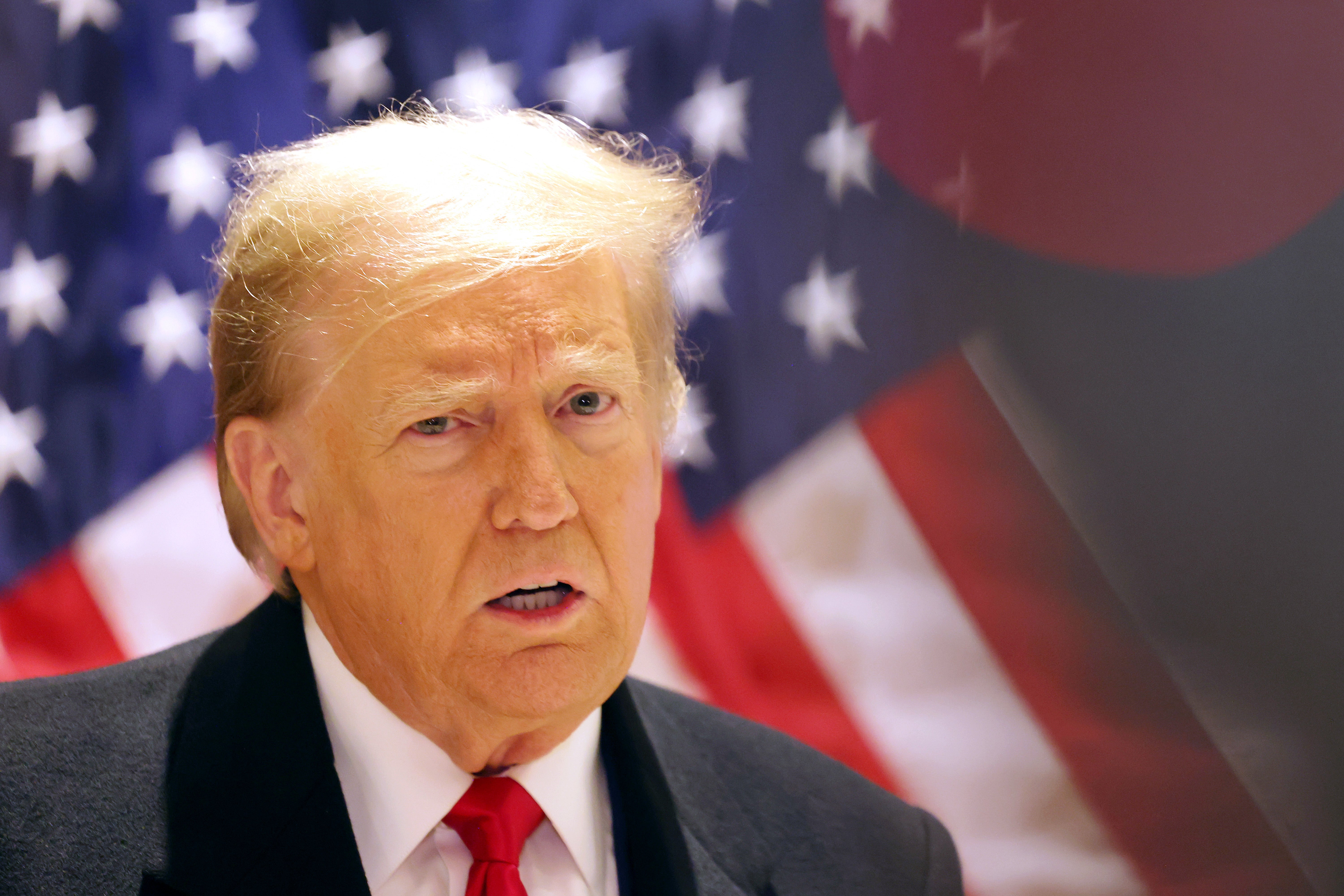Will Trump’s Truth Social flotation dig him out of his financial hole?
The ex-president isn’t just asking supporters for votes – he’s relying on their cash, too, says Chris Blackhurst


With one bound, he is free. So goes the story of Donald Trump.
One moment, the former president is a commercial busted flush, drowning in lawsuits over his business and tax affairs and facing the distinctly possible threat of having to sell his eponymous properties across North America or his beloved Mar-a-Lago country club in Palm Beach. The next moment, he is soaring up the wealth charts, on his way to reclaiming a spot as one of the world’s richest men. It’s unreal. But then, not much about Trump ever does turn out to be real.
He trades in empty boasts and falsehoods. He’s got where he is by stirring a whirlwind of activity. Stopping would risk exposure; better to keep spinning.
So it is with his bounceback. His Truth Social platform suddenly has a market valuation, as I write, of $13bn (£10.3bn). No matter it is loss-making; no matter it has no track record.
This was achieved with trademark self-promotional genius, and the clever use of a merger with Digital World Acquisition Corp. In the trade, Digital World Acquisition Corp was a SPAC (special purpose acquisition company). It was quoted, giving whoever bought it and combined with it an instant stock market listing without having to go through the usual convoluted strictures of seeking a public quote.
It was renamed Trump Media & Technology Group and anyone could buy its shares. But rather than have the ticker symbol TMTG, Trump registered his own initials, DJT. He made it personal. Invest in DJT, and you’re investing in him.
The stock began trading on Tuesday, straight after the merger. Shares gained one-third in value, earning Trump a paper windfall of $5.3bn. This for a group that notched up revenues of just $3.4m for the first nine months of 2023, and lost $49m.
Wednesday saw DJT reach a market capitalisation of $13.5bn. It has kept on climbing, swamping small-investor chat boards, becoming the most talked-about stock.
In an election year, the Make Trump Rich Again company is living testament to his Maga political mantra. It’s becoming another fund-raising avenue for his supporters: buy DJT, put Trump’s financial woes behind him, and give him a clear path to the White House. Better still if, as a punter, you can make some money along the way.
But it’s not just unquestioning Trump acolytes who are drawn to DJT. Retail investors, realising the potential draw of the stock, are piling in. “Hate Trump but I knew his minions wouldn’t be able to help themselves the moment the ticker changed. Would’ve doubled down if I had any additional funds,” said WallStreetBets user FlapjackInProtest, who claimed he had turned $500 into $6,000 by trading TMTG options.
Another WallStreetBets user, optimal_burrito, replied to someone who posted that buying Trump Media was their first winning trade with the message: “You’re gonna start winning so much you’ll get sick of it #DJT.”
Where this is heading is a likely repeat of the 2021 phenomenon in which small-time investors rushed to buy household names, sending their shares soaring way beyond anything justifiable by actual company performance. These “meme stocks” set off alarm bells as they acquired a cult-like following, but were nothing more than colossal gambles.
They were joined by more calculating speculators, who rode for some of the journey before checking out, having made a handsome profit. Others stayed the course, only to crash back down to earth as the companies failed to produce results.
Add to that issues of corporate governance in some cases, as these were SPACs that had deliberately set out to short-circuit the rules and normal checks and balances.
The speedy rise of DJT brings new focus on SPACs and whether the ruse of buying a quoted business simply to gain a stock market listing – especially for a company that does something entirely different, is brand new, and does not have years of accounts and official filings behind it – is right and proper.
It’s a loophole that should be closed. Some say SPACs are a good way of getting companies quickly to market and, once listed, firms must follow the stock market rules, so where’s the problem? There isn’t one, except they can be an invitation for folk to lose their shirts.
It’s not all plain sailing for Trump. If he’s not careful, and if DJT does not deliver, he could be left with an awful lot of unhappy people nursing large losses. That’s not a good look for any politician.
For now, in the eyes of many supporters, he can do no wrong. But with DJT, he’s asked them to give him more than their vote – he’s taken their money, their hard-earned savings. He may yet find them not so forgiving should DJT fail to match its share price with decent results.
Subscribe to Independent Premium to bookmark this article
Want to bookmark your favourite articles and stories to read or reference later? Start your Independent Premium subscription today.






Join our commenting forum
Join thought-provoking conversations, follow other Independent readers and see their replies
Comments